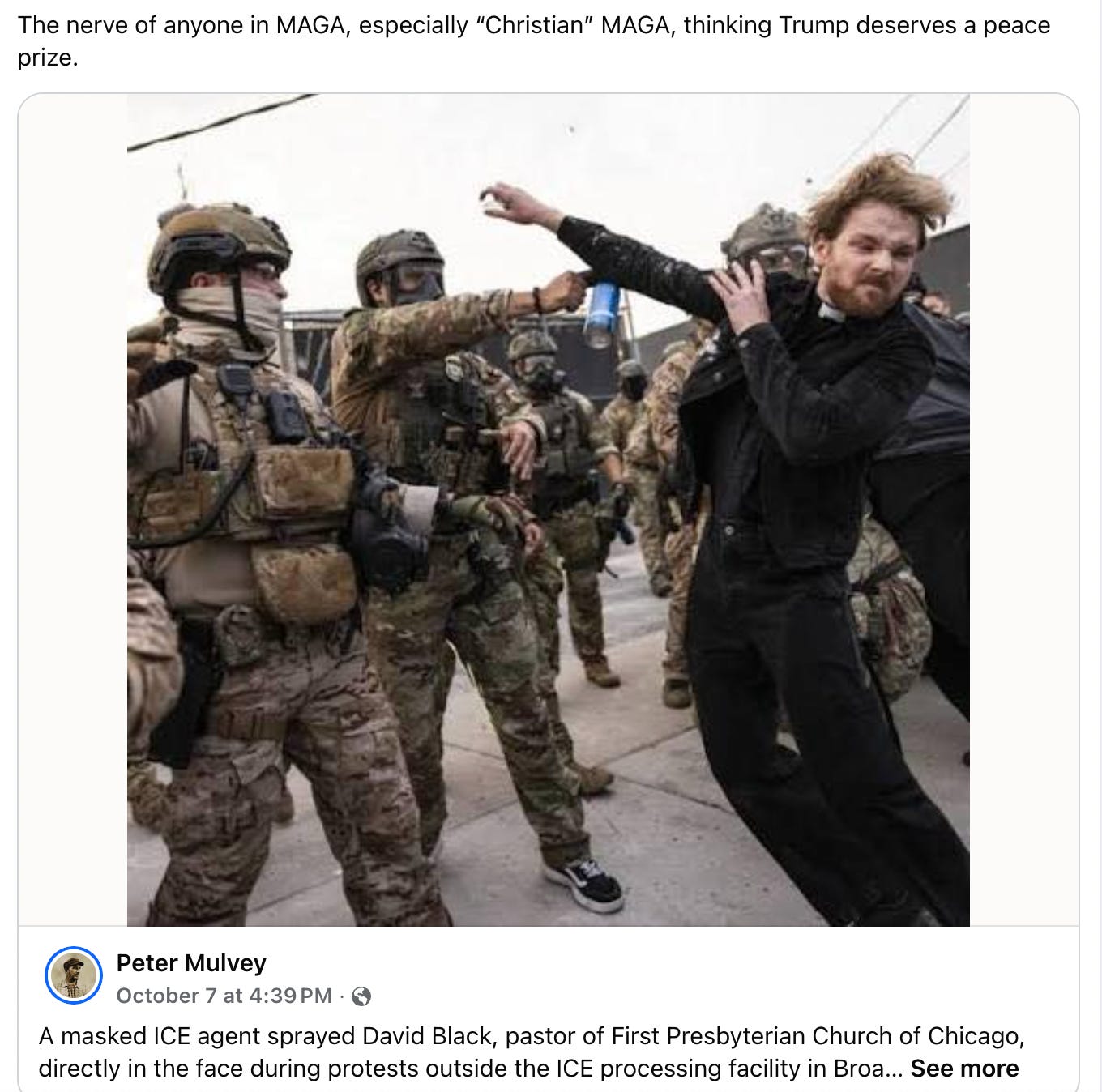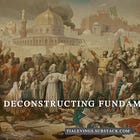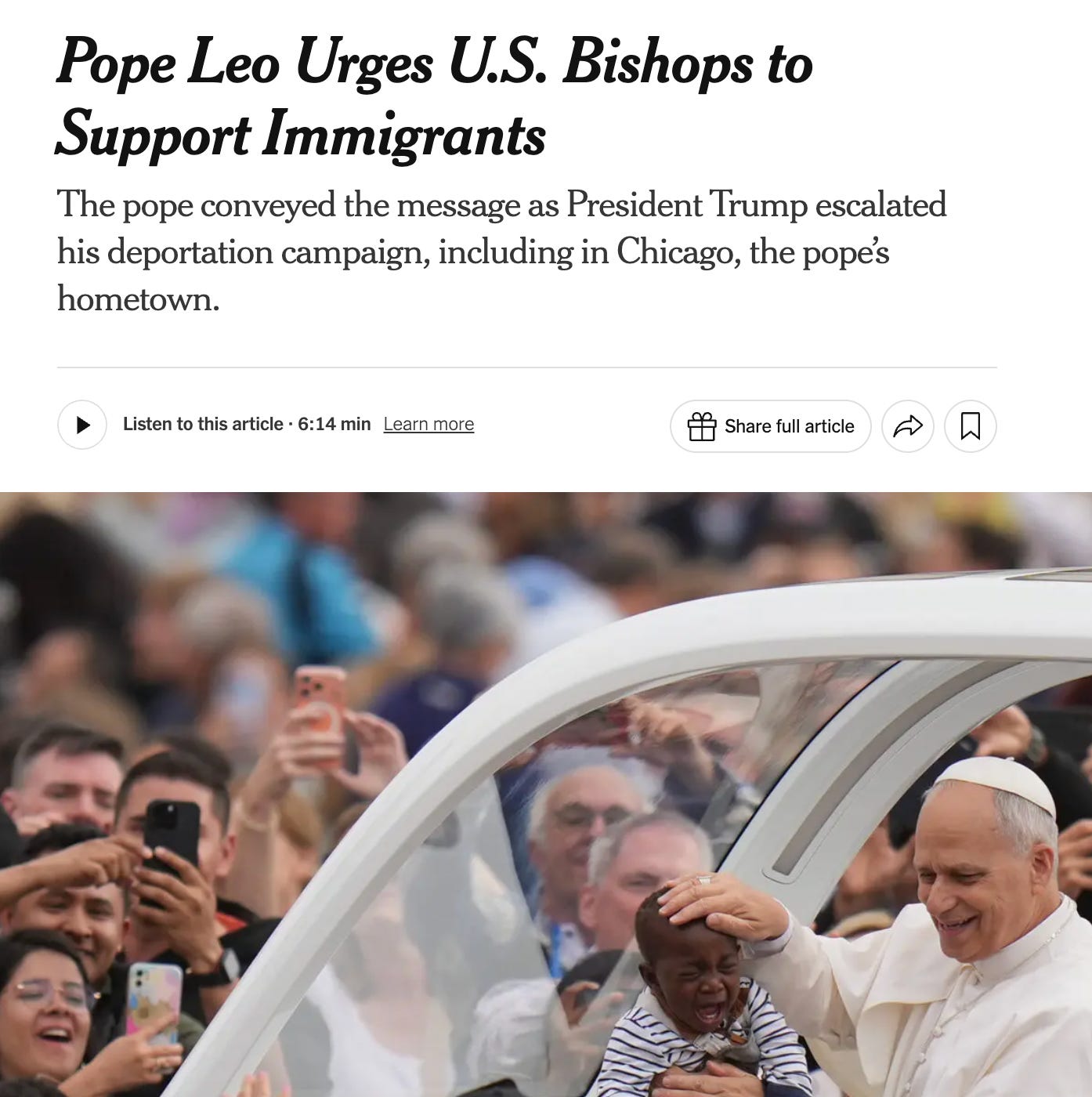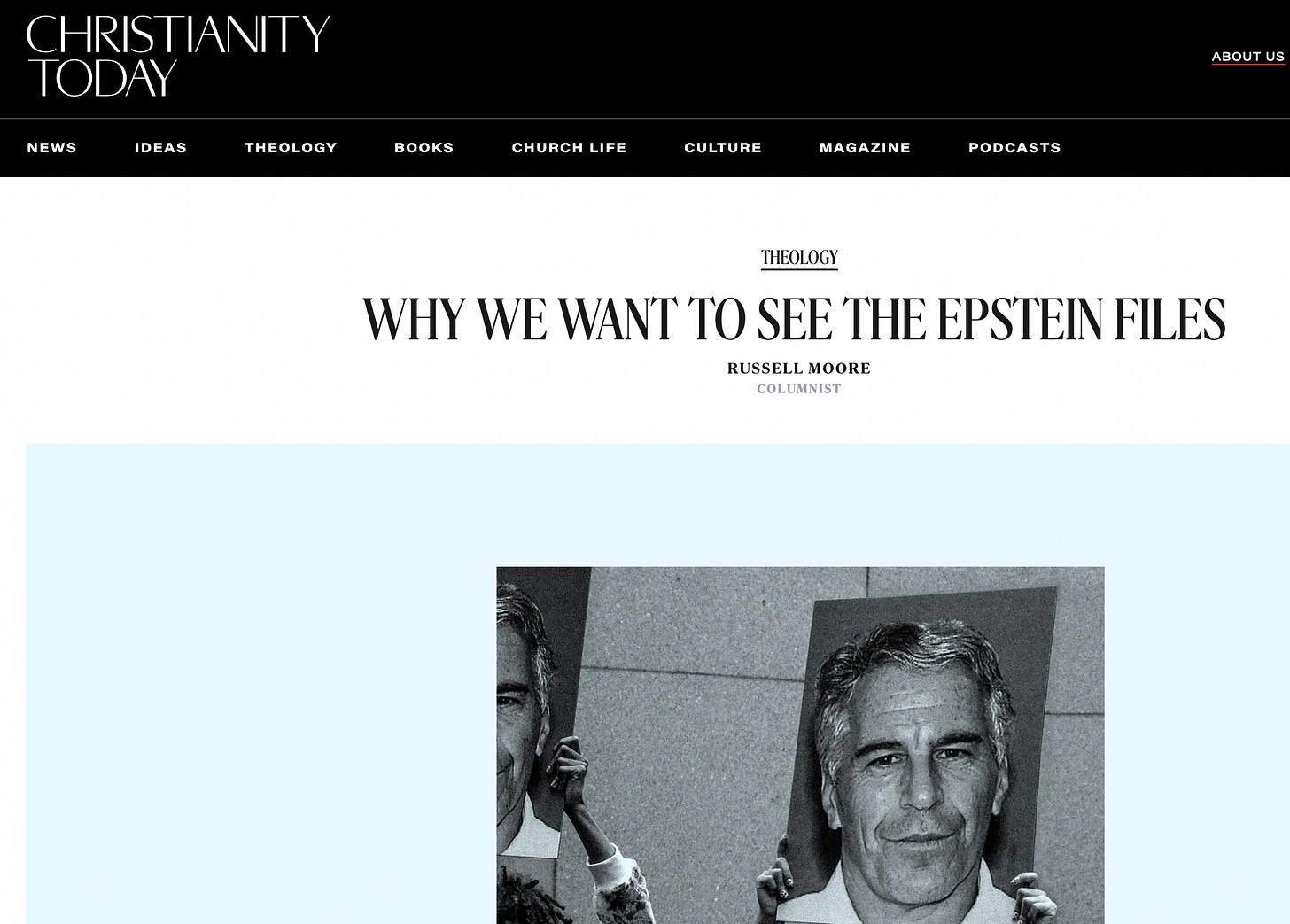Why a Christian Identity Differs from a Christian Nationalist Ideology
The gatekeepers failed to gate keep.

The way Christian Nationalism rose in evangelical Christian churches is personal for me. As I grew to adulthood, the church I attended became more political, fundamentalist, and nationalist. The fruit of this movement in my life was high control, manipulation, objectification, exploitation, and abuse.
It took years of trauma recovery on the other side of my violent escape to realize the differences between Christianity and Christian Nationalism, and I’ve yet to fully understand or reconcile how Jesus-loving Christians in my church allowed this harmful ideology to spread like cancer through our mega-congregation, then denomination, and now country.
When I’m feeling exceptionally compassionate, I’m able to remember how anger against injustice and abuse was conditioned out of us. How pain and fear were bypassed and dismissed. How suffering became sanctified. How we slowly came to believe that our purpose was as one of a whole, uniform crusade to take America for a different version of Christ: a cruel vanquisher who stomps his enemies.
I always thought the King Jesus, who would be victorious over evil, meant he’d be the victorious savior for the hurting and harmed. Instead, evangelical Christianity turned King Jesus into a war monger and bigoted assailant, blind to suffering, deaf to the cries of children.
So, more often, I’m frustrated that Christians didn’t protect the vulnerable. They didn’t clean their house of extremists and extreme views. They let Christian Nationalism rise to gain money and power for their movement, and they left abuse survivors and advocates to do hard work in their stead.
“Not all Christians are abusers,” they say. “You were hurt by people. Don’t give up on Jesus,” they write. “Those aren’t true Christians,” I read in comment after comment, deeply aware that to those inflicting the wounds, they met the only criteria to call oneself a Christian: belief in Jesus Christ.
As a survivor of religious abuse, I’ve found the “but not all Christians” defense mechanism to distinguish between good/real/true Christians from bad/fake/false to be unhelpful and harmful.
“Not all Christians,” but why are you protecting the system over the victims?
“Not all Christians,” but why are you spending so much energy defending the “good ones” against those harmed? Why not use that same energy to bring the perpetrators to justice?
“Not all Christians,” but how many are too many?
“Not all Christians,” but when will it be enough of them, or enough harm done, before you address the predators?
“Not all Christians,” but why would I cheerlead and protect the reputation of a system when my loyalty and energy are dedicated to the survivors of abuse, in a system that needs to change?
Now that Christian Nationalism is refining what it means to be a Christian in America, I’m not sure that resistance against the “not all” argument is the line we need to be holding. Here’s why.
Christianity is a broad identity.
There have always been multiple expressions within the identity of Christianity, making it like any other identity: a set of characteristics that distinguish a person or group from others.
Identities are fluid, meaning someone who identifies as a Christian can grow and evolve over time. Identities are also multi-faceted and diverse, and inform our perspectives and the ways we engage with the world (our worldview).
Christian Nationalism is a specific ideology.
Ideologies are like lenses worn over worldviews.
“Isms” are prescriptive systems that use set and determined principles to instruct how a society should be run. Christian Nationalism has predetermined ideas on how individuals should live, how they should engage with the world, respond to abuse and violence, and why.
Ideologies justify collective actions and may be held unconsciously by an individual or group.
The Christian identity claims belief and behavior in line with Jesus Christ.
The Christian Nationalist ideology promotes Christian identities and viewpoints as a means to an end: political dominance.
So yes, not all Christians are Christian Nationalists, any more than all Christians belong to the same denomination.
Identities are not monolithic. Groups, races, systems, congregations, parties...these are not static ideologies where one represents all, or where uniformity and conformity are expected. Personal variance is understood.
Many Christians rightly understand that Jesus did not teach political dominance. That Jesus was speaking of empathy, Samaritan compassion, friendship, service, love, and belief. A Christian follows Christ and cares about what Jesus said and did for the downtrodden, marginalized, and least of us. The children. Jesus didn’t preach an ideology that justifies the inhumane actions of the collective: he disrupted it.
Many Christians understand what Jesus said about immigrants.
Many Christians are against a government that justifies unlawful violence against peaceful protestors and priests.
Many Christians are grieved by stories of abuse and violence against women and children.
So yes, not all Christians are Christian Nationalists, any more than all Christians belong to the same denomination.
Christian Nationalists justify harmful behavior, actions, and personalities because their goalpost is not “to be more like Christ.” It’s to gain and hold political power.
They will do and accept anything it takes to achieve it, including pardoning pedophiles, turning our own military on the American people, shutting down the government, and destroying our constitutional rights, because Christian Nationalists don’t adhere to a constitution. They are theonomists using Christians as a means to an end.
This makes it glaringly apparent that not all Christians are Christian Nationalists.
A better question is, why do Christians who are not Christian Nationalists allow this harmful ideology to stay in power?
Why did they lie down and let the bullies win? Jesus would have flipped tables and cleared out his house. Evangelicals built bigger buildings, manufactured merch, and welcomed the moneychangers in.
Christian Nationalism rose to power within Christian churches, largely unchecked.
Christian Nationalism co-opted Christian terms, the name itself, and the identity within Christian seminaries and congregations, largely unchecked.
Christians allowed Christian Nationalism to rise, and then left it to others to define, declare, and defeat.
Why did Christians leave it to secular society to point out how little Christian Nationalism has to do with Jesus?
Why is secular society tasked with determining what is a true Christian from a false one?
Why must abuse victims become the loudest advocates for those also harmed by Christian Nationalism?
Why are agnostics and atheists left to wonder why Christians have no empathy any longer?
Is this a twistedAF brand of evangelism? Can you imagine? Let’s use Kristi’s or Karoline’s voice: “We’ll traumatize the nation and destroy democracy in Jesus’ name, and then when you’re confused about that, you’ll study the Bible and find God. Then, you’ll join us!” That’s some MAGA math.
Christians outside of Christian Nationalism have spent years emphasizing how different they are as “not alls,” renaming themselves as Jesus followers, progressives, liberals, and exevangelicals. Distinction, rather than protection, became the survival mechanism.
This often puts them outside of Christian inclusion because, in-house, there’s little to no room to question the ideology taking over the country and redefining an identity. They become a threat to power. I feel for them. It’s got to be an endless tension trying to be a Christian in a Christian Nationalist environment. And from what I’ve witnessed, sooner or later the theonomists take it a step too far, and the step away becomes inevitable.
But for the ones who stay…
If not all Christians are Christian Nationalists, why is there so little condemnation of Christian Nationalism within American Christian churches?
What do you think of the Pope’s call to the Bishops? Have you considered where you draw the line in terms of remaining affiliated? What has it been like attempting to carve out space for a personal faith? How vocal and energized are you willing to be against what’s being done in Jesus’s name?
Christians Calling Out Christian Nationalism:
There are some. I have Christian colleagues in this field doing powerful advocacy work.
, , , come immediately to mind. There are many more. Feel free to tag other Christians against Christian Nationalism in the comments.Comment section notes:
I recently opened my Substack and removed the paywall from ongoing posts, as well as the comment section. The shift is bringing in new readers, and I’d love it if you said hello.
For those new here: this column is primarily written to those who have left high-control religion and/or are seeking a translation of evangelical influences in our culture, news, politics, and headlines. I maintain my social media spaces to foster healthy conversation on those topics in support of survivors of religious trauma. It is not a space for debate or Christian apologetics. If you have a different viewpoint, your curiosity and questions are welcome.
Buy A Well-Trained Wife or preorder I Belong to Me: A Survivor’s Guide to Recovery and Hope after Religious Trauma. Upload your preorder receipt here to receive a free year of premium access to this column, as well as the preorder gifts releasing before the launch. Deconstruction courses are on my website: deconstructing for integrity, contending with complicity, and outgrowing a fundamentalist mind.








I used to be “Christian”. Before Covid and the protests over George Floyd. Jeremy Jernigan (JeremyJernigan.com) was the pastor of the church I attended when Covid hit. He spoke up on his blog about many different topics that are controversial in the church. And while what he spoke was rooted in the Bible and Jesus, the elders (aka old white guys) of that church didn’t like his stance and kicked him out, fired him. I was on his side and when that happened I said goodbye to church. I didn’t and still don’t want to be connected to those people. You should check him out. He speaks up for people of color, LGBTQ, poor/homeless, and against Christian Nationalism. He’s honest and down to earth and funny. He moved back to Arizona from Oregon when he was let go, but I still follow him.
My mom calls herself a Jesus following Christian, but she absolutely will not even begin to examine the fact that the “Christians” in power right now have nothing in common with her beliefs. I asked her about this specifically, and her response was “please honor my request to not talk about this.”
My take away is that Christians in general will not address or examine topics that make them uncomfortable.